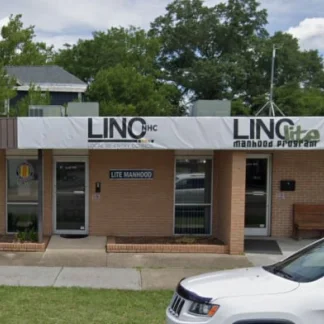Port Human Services
Port Health Services is a Critical Access Behavioral Health Agency (CABHA) licen...
NHC Local Reentry Council – LINC is a non-profit rehab located in Wilmington, North Carolina. NHC Local Reentry Council – LINC specializes in the treatment of alcoholism, drug addiction, and mental health and substance abuse.
Contact us for more information: (910) 889-1140

Connect with NHC Local Reentry Council - LINC by calling their admissions team directly.
(910) 889-1140 Website Get DirectionsGroup therapy is any therapeutic work that happens in a group (not one-on-one). There are a number of different group therapy modalities, including support groups, experiential therapy, psycho-education, and more. Group therapy involves treatment as well as processing interaction between group members.
In individual therapy, a patient meets one-on-one with a trained psychologist or counselor. Therapy is a pivotal part of effective substance abuse treatment, as it often covers root causes of addiction, including challenges faced by the patient in their social, family, and work/school life.
Life skills trainings involve all the skills a person must have in order to function successfully in the world. These include time management, career guidance, money management, and effective communication. Truly successful addiction recovery is based on the ability to not only live substance-free, but to thrive. Life skills teaches the practical necessities of functioning in society, which sets clients up for success in life, and therefore sobriety.
In individual therapy, a patient meets one-on-one with a trained psychologist or counselor. Therapy is a pivotal part of effective substance abuse treatment, as it often covers root causes of addiction, including challenges faced by the patient in their social, family, and work/school life.
Life skills trainings involve all the skills a person must have in order to function successfully in the world. These include time management, career guidance, money management, and effective communication. Truly successful addiction recovery is based on the ability to not only live substance-free, but to thrive. Life skills teaches the practical necessities of functioning in society, which sets clients up for success in life, and therefore sobriety.
Life skills trainings involve all the skills a person must have in order to function successfully in the world. These include time management, career guidance, money management, and effective communication. Truly successful addiction recovery is based on the ability to not only live substance-free, but to thrive. Life skills teaches the practical necessities of functioning in society, which sets clients up for success in life, and therefore sobriety.
Port Health Services is a Critical Access Behavioral Health Agency (CABHA) licen...
Fayetteville VA Medical Center–Wilmington Health Care Center provides comprehens...
Christian Recovery Houses is a recovery facility located in Wilmington, NC. Chri...
Pavillon by the Sea – Outpatient is a private rehab located in Wilmington, North...